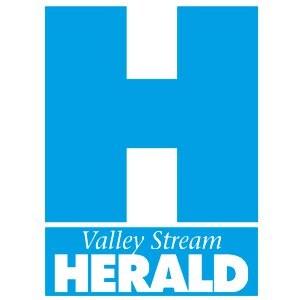Recognizing holidays means respecting Muslims
About 100 people stood at the beginning of the Central High School District’s regular board meeting on Feb. 14 to recite the Pledge of Allegiance.
It is not a vague oath. It is an expression of loyalty to the United States of America, an affirmation that supreme power is to be held by the people and their elected representatives.
Many attendees were congregants of the Masjid Hamza Islamic Center of South Shore, a Valley Stream mosque, who were eager to hear the Board of Education’s decision on whether to recognize Islam’s two holiest holidays — Eid al-Adha and Eid al-Fitr — on future school calendars. The board listened to its constituency and passed the measure to roaring applause.
In the weeks that followed, the response on the Valley Stream Herald Facebook page devolved into intolerant hysteria, with more than 200 comments, many of them directed against Muslims. A handful defended the board’s decision.
“There goes the neighborhood,” wrote one reader.
“This is not my community anymore … Disgusted,” said another.
“When’s this s--t gonna stop? Thank God I grew up in Valley Stream in the ’60s and ’70s. Can’t wait ’til I get out of here,” concluded another.
Board President Cristobal Stewart, may have spoken too freely during an interview with a Newsday reporter when he said it was particularly important to recognize Muslim holidays “in the time of Trump.” The critics, including some who supported inclusion of Muslim holidays in the calendar, immediately pounced, saying that Stewart had crossed a line because he made the board’s decision seem like a political one.
Stewart’s statement, however, does not negate the good of recognizing two Islamic holidays.
The Council on American-Islamic Relations reported that there have been more than 100 bias incidents against Muslims in recent months. Dalia Mogahed, a Muslim-American scholar and the director of research at the Institute for Social Policy and Understanding in Washington, D.C., gave a powerful TED Talk about the polarization of her faith in 2016: “I don’t mind questions. I love questions. It’s the accusations that are tough. Today we hear people actually say things like, ‘There’s a problem in this country and it’s called Muslims.’”
No, Valley Stream is “not what it used to be.” For one thing, it’s a lot less white. In 1999, 63 percent of the student population in Valley Stream’s four school districts was white. The student population in 2015 was 21 percent white.
The shift in demographics is more than a set of numbers. If you’ve lived in Valley Stream for more than 20 years, you’ve watched your neighborhood change. Your neighbors are now often non-white. If this fact upsets you, it’s time to do some soul-searching.
The Board of Education’s decision to approve a school calendar that is equitable for all, and the process by which trustees arrived at their decision, are admirable. Their approval sends a strong message of acceptance to Muslims, particularly those who feel threatened and are scared to identify themselves.
Most Muslims would like nothing better than to practice their religion without a thought given to politics. Where politics are divisive, humanity is inclusive. It’s time to change the channel.
Russian novelist and historian Aleksandr Solzhenitsyn once wrote that the “line separating good and evil passes not through states, nor between classes, nor between political parties either — but right through every human heart.”
Radical groups like ISIS have as much in common with Islam as the Ku Klux Klan has with Christianity. Islamic culture is rich and ancient and worthy of respect. Take the time to get to know your Muslim neighbors. In this way, you’ll be working to create a stronger community and a more peaceful world.
The disrespect that we are witnessing on the Herald’s Facebook page must stop. It is misguided and mars constructive conversation.






